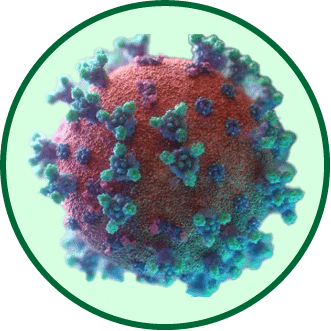Breathe with Ease: Recognizing and Responding to Respiratory Illness Symptoms
Introduction:
In our fast-paced world, respiratory illnesses can often sneak up on us, manifesting symptoms that we might dismiss as mere nuisances until they escalate. Understanding the nuances of these symptoms, from the common cold to more severe conditions like flu, bronchitis, and pneumonia, is crucial. This comprehensive guide aims to illuminate the warning signs of these respiratory illnesses, offering insight into effective responses and when to seek medical intervention. Empower yourself with the knowledge to breathe easier and maintain optimal lung health.
1. Decoding Symptoms: Know What to Look For
- Persistent Cough: A hallmark of respiratory issues, a cough that worsens over time or produces colored mucus warrants attention.
- Breathing Difficulties: Shortness of breath, especially if it occurs suddenly or without explanation, requires immediate medical evaluation.
- Fever and Chills: High temperature and shaking chills are classic signs of systemic infection often seen in flu and pneumonia.
- Fatigue: Unusual or severe tiredness can indicate your body is fighting an infection.
Keywords: persistent cough, breathing difficulties, fever and chills, systemic infection, severe tiredness.
2. Self-Care Strategies: Managing Mild Symptoms at Home
- Rest: Prioritize sleep and relaxation to give your body the strength to combat illness.
- Hydration: Drink plenty of fluids to thin mucus and relieve congestion.
- Over-the-Counter Remedies: Symptom-specific medications can provide relief. Decongestants, cough suppressants, and fever reducers are commonly used.
- Humidifiers: Adding moisture to the air can ease breathing and soothe irritated respiratory tracts.
Keywords: rest, hydration, over-the-counter remedies, humidifiers, relieve congestion.
3. When to Seek Medical Care: Escalating Symptoms Demand Professional Attention
- Worsening Symptoms: If symptoms persist or escalate despite home care, it’s time to consult a healthcare provider.
- High Fever: A fever above 102°F (38.9°C) or a moderate fever lasting more than a few days should be evaluated.
- Breathlessness: Difficulty breathing, or shortness of breath, especially at rest or leading to sleep disturbances, necessitates immediate medical attention.
- Underlying Health Conditions: Individuals with preexisting health issues should seek early intervention even for mild symptoms.
Keywords: worsening symptoms, high fever, breathlessness, sleep disturbances, underlying health conditions.
4. Diagnostic Measures: Understanding the Process
- Physical Examination: Healthcare providers will listen to your lungs, check oxygen levels, and assess overall respiratory function.
- Imaging Tests: Chest X-rays or CT scans can provide visuals of your lungs, often crucial in diagnosing pneumonia or severe bronchitis.
- Lab Tests: Blood tests, nasal swabs, or sputum samples can identify the pathogen responsible, guiding targeted treatment strategies.
Keywords: physical examination, imaging tests, lab tests, diagnose pneumonia, targeted treatment.
5. Treatment Options: Navigating Through Medical Care
- Antibiotics: Essential for bacterial infections like pneumonia and certain bronchitis cases, but ineffective against viral infections.
- Antivirals: Can lessen the severity and duration of viral infections like the flu if taken within a specific timeframe from symptom onset.
- Steroids or Bronchodilators: Often used for bronchitis, these can reduce inflammation and open narrowed airways.
- Supplemental Oxygen: Severe respiratory illnesses might compromise oxygen levels, necessitating supplemental oxygen.
Keywords: antibiotics, antivirals, steroids, bronchodilators, supplemental oxygen.
6. Prevention is Paramount: Staying One Step Ahead
- Vaccinations: Keep up with recommended vaccines, including annual flu shots and pneumococcal vaccines.
- Healthy Lifestyle: A balanced diet, regular exercise, and adequate sleep significantly bolster your immune defenses.
- Quit Smoking: Smoking is a significant risk factor for respiratory illnesses; quitting is essential for lung health.
Keywords: vaccinations, healthy lifestyle, quit smoking, immune defenses, lung health.
Conclusion: Recognizing and effectively responding to respiratory illness symptoms are skills that require both knowledge and attentiveness to your body. Early detection and appropriate action can significantly impact outcomes, often turning a potentially severe illness into a manageable one. However, this guide is not a substitute for professional medical advice. Always consult with a healthcare provider for symptoms that are severe, worsening, or simply not clear. With the right information and resources, you hold the power to navigate through respiratory challenges with confidence.
(Note: This article is designed for educational purposes only and should not be used as a replacement for professional medical advice.)
Keywords: recognizing symptoms, early detection, professional medical advice, healthcare provider, respiratory challenges.
